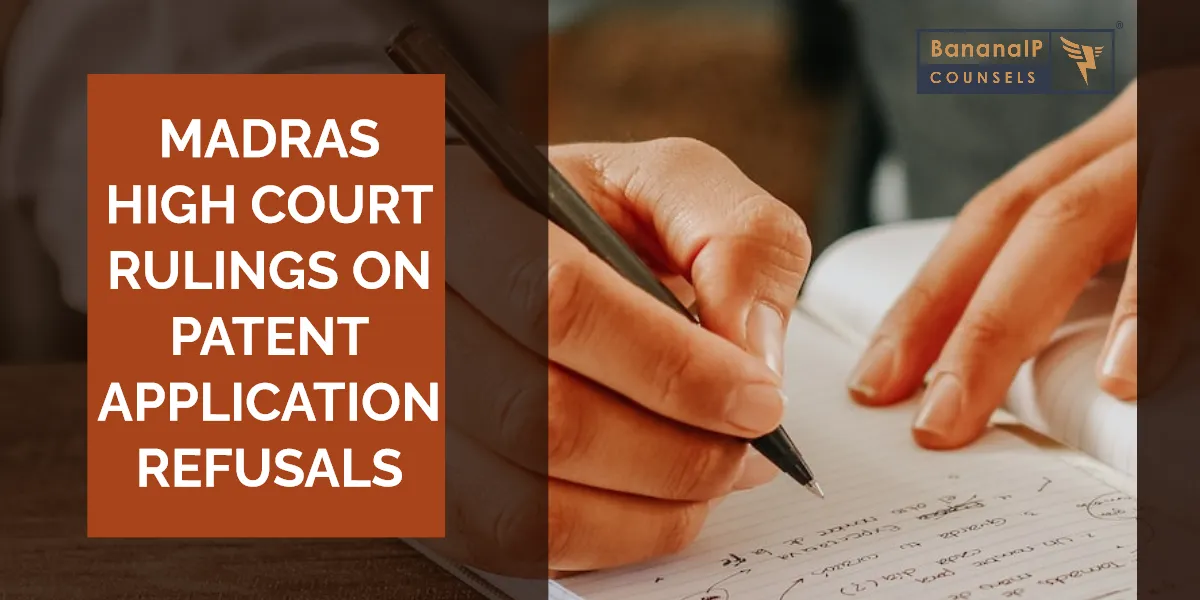In this post, we examine recent Madras High Court rulings that have overturned patent application refusals. These cases, involving complex topics such as immunological targeting, drug delivery formulations, and polynucleotide libraries, highlight the Court’s stance on the necessity for clear and cogent reasoning in patent application rejections.
Case Notes
Rejection of claim amendments under Section 59 without reasons is not valid, says the Madras High Court.
In a case involving a patent application relating to “Immunological Targeting of Pathological Tau Proteins”, the Controller of Patents refused the application on the ground that amending method claims to composition claims is not permitted under Section 59. The refusal did not include any reasons except stating the statutory provision. The Madras High Court therefore set aside the order of refusal, and remanded the application for fresh consideration by another officer.
Citation: New York University vs The Assistant Controller of Patents and Designs, Madras High Court, 30th October, 2023, (T)CMA(PT)/43/2023 (OA/23/2020/PT/CHN)
Reasons for refusal of a patent based on inventive step must be cogent, says the Madras High Court.
In an appeal involving the refusal of a patent application relating to a ‘colonic drug delivery formulation’, the Madras High Court set aside the refusal order stating that reasons for refusal must be clear and cogent. The Controller had cited 6 prior art references with respect to the patent application in question and had refused the application based on the same. Other patent offices had granted a patent in the context of the same prior art references, but the Controller in India had refused the application. While setting aside the order, the Court ordered that the case be assigned to another officer.
Citation: University College London vs Assistant Controller of Patents and Designs, Madras High Court, 17th October, 2023, (T)CMA(PT) No.32 of 2023 (OA/5/2017/PT/CHN)
Patent refusal based on insufficiency of disclosure must clearly point out which claims were not fully disclosed, says the Madras High Court.
In an appeal from the refusal of a patent application relating to a polynucleotide library to identify, analyze, and utilize single samples, the Madras High Court stated that the Controller of Patents cannot refuse a patent application based on insufficiency of the disclosure without particularly pointing out which claim or element stood undisclosed or unsupported in the specification. The Controller in the case had refused the patent application stating that the claims were broad with several permutations and combinations, but the disclosures to support the same were meager. Setting aside the refusal order, the Court ordered the application to be assigned to another officer for fresh consideration based on the 69 examples disclosed in the patent specification.
Citation: The Board of Trustees of the Leland Stanford Junior University & Anr. vs Assistant Controller of Patents and Designs, Madras High Court, 08th November, 2023, (T)CMA(PT)/141/2023 (OA/43/2020/PT/CHN)
Conclusion:
The Madras High Court’s decisions underscore the importance of detailed reasoning in patent application refusals. By mandating explicit explanations for rejections, particularly regarding claim amendments, inventive steps, and sufficiency of disclosure, the Court ensures a more transparent and rigorous patent examination process.
Disclaimer
The case notes in this blog post have been written by IP attorneys at BananaIP Counsels based on their review and understanding of the Judgments. It may be noted that other IP attorneys and experts in the field may have different opinions about the cases, or arrive at different conclusions therefrom. It is advisable to read the Judgments before making any decisions based on the case notes.
If you have any questions, speak with a Patent expert/attorney – [email protected] or 91-80-26860414/24/34.



